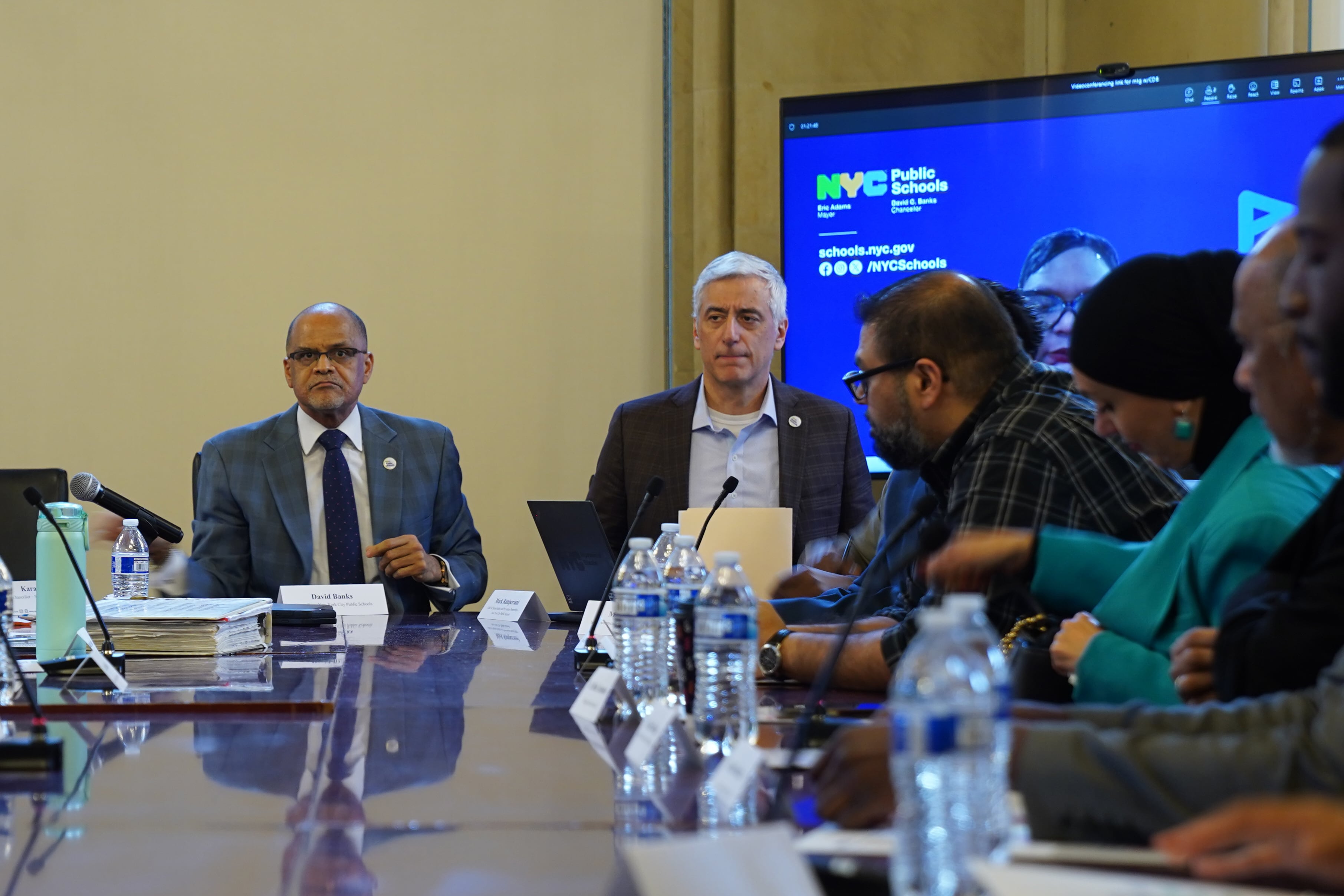
Dan Weisberg’s Reflections on His Time in the New York City Education Department
Dan Weisberg, who served as the second-in-command at the New York City Department of Education for three and a half years, is stepping down from his role. During his tenure, he played a pivotal role in shaping the city’s education policies, including overseeing major curriculum overhauls, advocating for the opening of 28 new schools, and supporting the appointment of Melissa Aviles-Ramos as chief of the nation’s largest school system.
Weisberg was responsible for managing a wide range of initiatives, such as the NYC Reads and Solves programs, which focus on improving reading and math instruction, and the pathways program aimed at connecting students to career opportunities before graduation. His work has been recognized by Aviles-Ramos, who praised his leadership, dedication, and commitment to innovation and equity in the schools.
Despite his accomplishments, Weisberg has also faced criticism. Some advocates argue that the department has not prioritized school integration and that certain policies may exacerbate existing issues. He began his career in the Education Department during the Bloomberg administration, where he often clashed with the teachers’ union. While initial concerns about his leadership arose, more recent efforts to expand teacher training have garnered praise.
As Weisberg prepares to leave the department next month, he shared insights into his assessment of the school system, the progress made under the current administration, and the challenges ahead.
Assessing the School System
When asked about his overall assessment of the school system compared to four years ago, Weisberg acknowledged the mayor’s strong emphasis on addressing disparities in reading and math proficiency among Black and Latino students. While some progress has been made, the challenge remains significant, with over 60% of these students still not meeting proficiency standards.
Weisberg emphasized that solving this issue requires fundamental changes in how reading and math are taught. Although the full impact of these changes may not be visible immediately, he believes that sustained effort over the next eight years will lead to significant improvements.
Challenges in Implementation
The implementation of the new curriculum has faced mixed results, with some test scores declining slightly in the past year. However, early data shows some encouraging signs. Weisberg stressed the importance of consistent implementation and adaptability, noting that the current chancellor has been effective in engaging with educators and adjusting strategies based on feedback.
Priorities and Progress
Weisberg highlighted the key priorities during his time in the department, including NYC Reads, NYC Solves, and student pathways. While foundational work has been completed, he noted that scaling these initiatives will take time. He expressed confidence in the team’s ability to continue making progress.
Child Care and Governance
When discussing Zohran Mamdani’s proposal for free child care, Weisberg acknowledged the importance of access to child care but noted the complexity of implementing such a program. He emphasized the need for collaboration with community-based organizations and the challenges of managing a large-scale system.
Regarding the governance structure, Weisberg argued against ending mayoral control, citing its effectiveness compared to previous systems. He acknowledged the frustrations with bureaucracy but maintained that the current system has improved student outcomes and experiences.
Immigration and Enrollment
Weisberg expressed concern about the potential impact of federal immigration policies on student enrollment. While there is no evidence of a system-wide decline, anecdotal reports suggest some families are leaving. He stressed the importance of continued immigration for the vitality of the school system.
Class Size Mandate
Critics have raised concerns about the city’s compliance with the class size mandate. Weisberg defended the department’s efforts, highlighting the allocation of significant resources and the expansion of alternative certification programs. However, he acknowledged the challenges of hiring thousands of new teachers and the need for innovative solutions.
New Schools and Academic Segregation
The opening of new schools has been a priority, with a focus on high-need neighborhoods. Weisberg emphasized that decisions were driven by community demand rather than internal preferences. He acknowledged the risks of academic segregation but stressed the importance of ensuring all students receive a quality education, regardless of the school they attend.
Looking Ahead
Weisberg plans to take some time off to spend with family before returning to the field. He remains committed to education and is eager to contribute in the future, though the specifics are unclear at this point.
Alex Zimmerman is a reporter for Articles of Education New York, covering NYC public schools. Contact Alex at azimmerman@ArticlesofEducation.org.